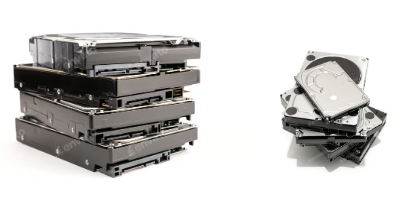When it comes to upgrading your computer or purchasing a new one, one of the most crucial components to consider is the storage drive. The two primary types of storage drives available today are Solid State Drives (SSDs) and Hard Disk Drives (HDDs). Each has its unique advantages and disadvantages, making the decision between them significant for your computing experience. In this blog, we’ll explore the benefits of SSDs versus HDDs to help you make an informed choice.
1. Speed and Performance
One of the most noticeable differences between SSDs and HDDs is speed. SSDs utilize flash memory, allowing for data access and transfer at lightning-fast speeds. This means quicker boot times, faster file transfers, and improved performance in demanding applications and games. On the other hand, HDDs use spinning magnetic disks to read and write data, resulting in slower speeds—an SSD can be up to five to twenty times faster than an HDD.
2. Durability and Reliability
SSDs have no moving parts, which makes them less vulnerable to physical damage from drops or bumps. This durability is especially advantageous for laptops and portable devices. HDDs, with their mechanical components, are more prone to failure due to physical shocks, making SSDs a more reliable choice over time for many users.
3. Energy Efficiency
When it comes to power consumption, SSDs generally use less energy than HDDs. This can result in longer battery life for laptops and less heat generation, contributing to improved overall system performance. With increasing energy costs and a focus on sustainability, the efficiency of SSDs can also lead to cost savings in the long run.
4. Storage Capacity and Price
While SSDs have become more affordable, HDDs currently offer larger storage capacities for a lower price. If you require a vast amount of storage for media files, games, or backups, an HDD might offer more space for your budget. SSDs are available in sizes up to several terabytes, but they remain more expensive per gigabyte compared to HDDs.
5. Noise Level
SSDs operate silently because there are no moving components involved in reading and writing data. In contrast, HDDs can produce noise due to the spinning disks and moving read/write heads, which may bother some users, particularly in quiet environments.
Which Should You Choose?
Ultimately, the choice between an SSD and an HDD depends on your specific needs and preferences. If speed, reliability, and energy efficiency are a priority for you—especially for gaming, professional work, or everyday computing—an SSD would be the ideal choice. However, if you need a larger storage capacity at a lower price for media files, backups, or if your usage doesn’t require the fastest speeds, an HDD may be more suitable.
In some cases, a combination of both can provide the best of both worlds: an SSD for your operating system and frequently used applications for fast access, paired with an HDD for mass storage. By understanding the benefits of each storage type, you can make the most informed decision to suit your computing needs and enhance your overall experience.
